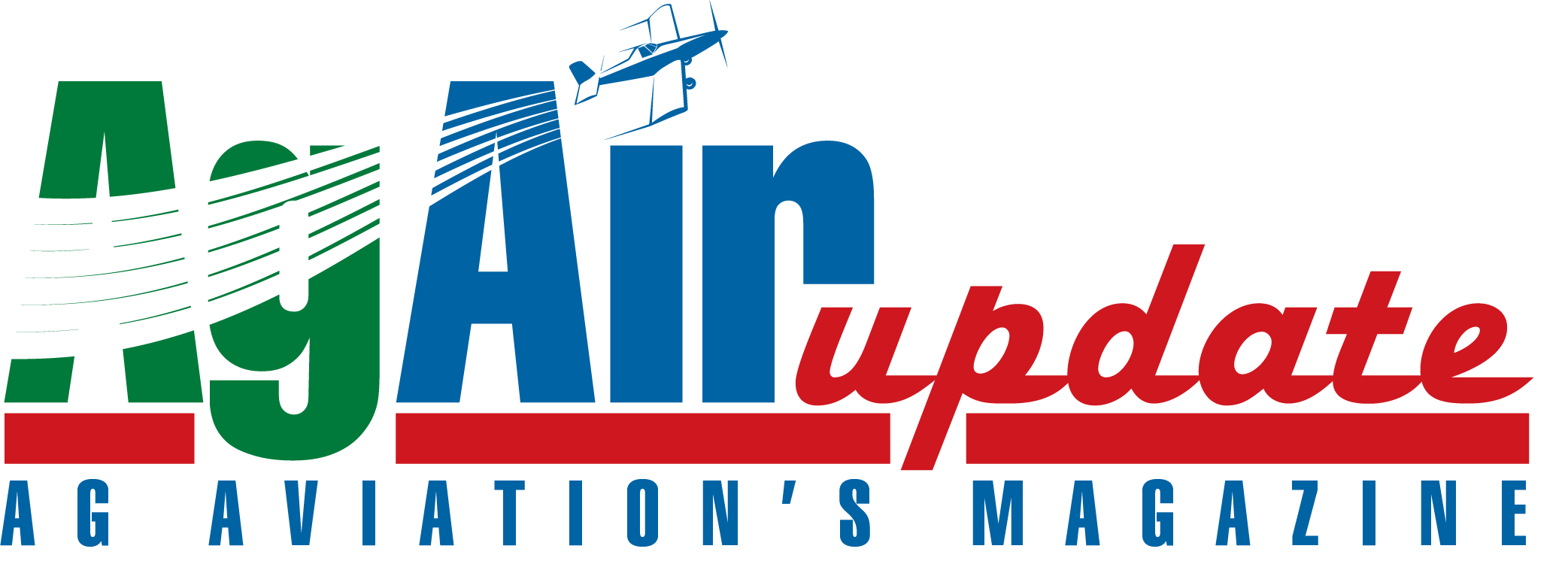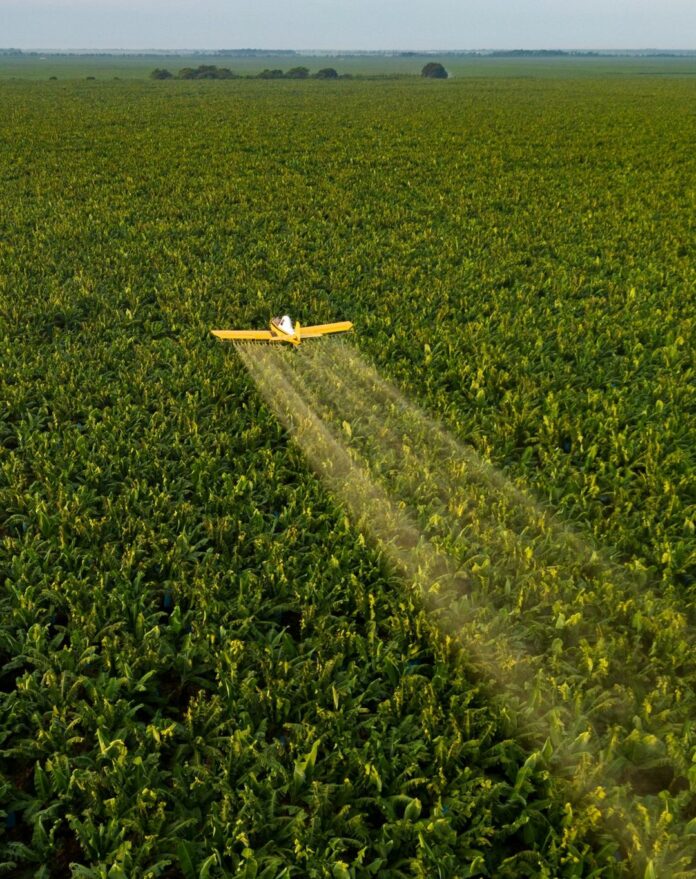How Conversiones SA has driven innovations in aerial application from Mexico to Panama
by Lucas Zanoni
Taking off into the future
It all began in the Guatemalan Air Force. Julio Cesar Reyes Veliz, the son of an aeronautical mechanic, had his first encounter with aviation during his childhood. His father, a descendant of Spaniards from the northern coast of Guatemala, worked in aircraft maintenance in the country’s capital and instilled in him the dream of becoming a pilot. At 18, Julio began his preparation to become an agricultural pilot: with two years of study, he obtained private, commercial, and ag pilot licenses.
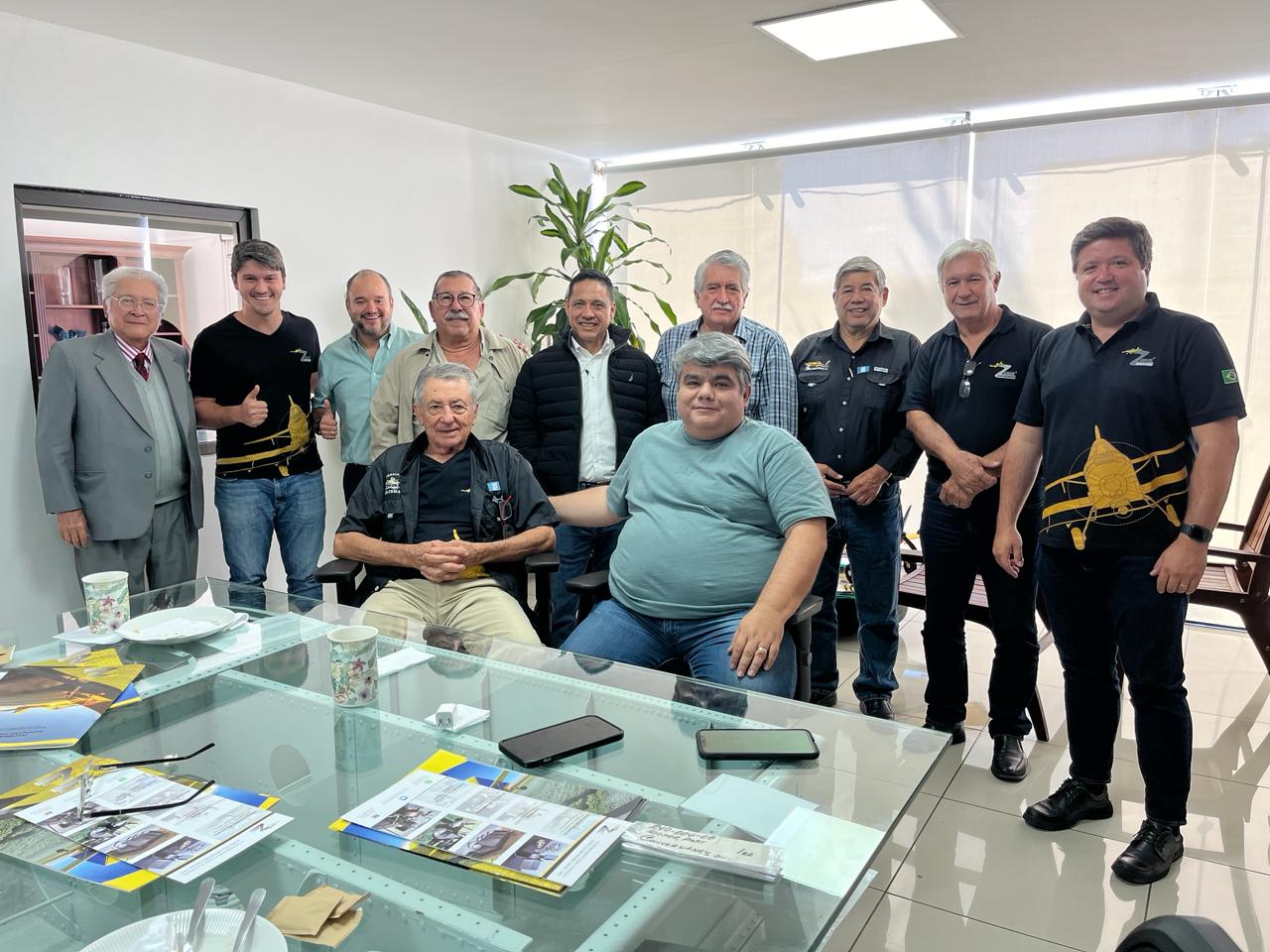
Starting his career in the mid-1970s, Julio flew his first three seasons in the Retalhuleu region, spraying for a Spanish cotton farmer (a crop booming in the country then), initially with a Pawnee and later with a Cessna. He then began working for Raul Garcia Granados, the largest cotton producer in Guatemala, where he would fly for over 20 years. He piloted the country’s first turbo Thrush and the Snow S-2A.
During the 1980s, Julio met his namesake, Julio Vargas, an agricultural pilot who alternated his work between Guatemala and Mississippi.
A decade later, after the cotton boom had passed, the two friends received a risky but tempting proposal. The largest spraying company in the country had gone bankrupt, leaving eight aircraft (including Turbo Thrush, AT-302, AT-401, and AT402) inoperable. The bank that had acquired the machines approached the two pilots and offered them to take ownership.
In 1997, Conversiones SA was born with a clear purpose: to modernize the Guatemalan agricultural air fleet. The initial focus was on the heart of the aircraft, requiring a revival of their turbines. For this, they brought in Juan Martinez, who is responsible for maintenance, to establish their first base in Tiquisate.
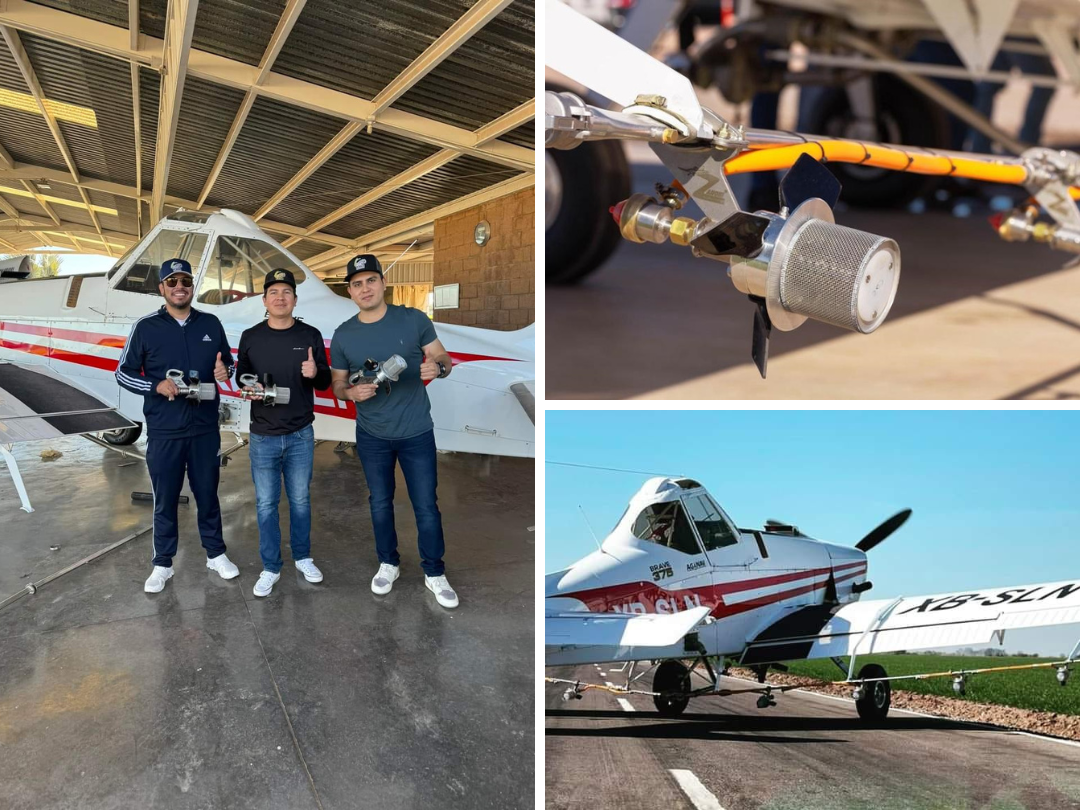
Conversiones established a contract with the U.S. Embassy in Guatemala in its first year of operation through the U.S. Department of Agriculture’s (USDA) whitefly eradication program. This project aimed to control an insect causing enormous economic losses to various agricultural industries (it is estimated that in 1990 alone, the whitefly caused a loss of USD 500 million in the states of Florida, Texas, California, and Arizona).
Although coffee, one of Guatemala’s main crops, was not attacked by the pest, it was one of its primary hosts. It was discovered that spraying over 300,000 hectares of coffee plantations in Guatemala was crucial for the phytosanitary safety of the United States. Thus, Conversiones began its first season contributing to American agriculture as well.
In this way, the company emerged with a particular purpose: to rebuild airplanes (and, in the case of piston aircraft, convert them to turbines) and use them for protecting crops. Some of those eight immobilized aircraft were sold to other regional operators after refurbishment, and the remainder became part of Conversiones’ own spraying operation. In addition to coffee, the company expanded its protection to the sugarcane and banana industries, which are currently the main large-scale crops in Guatemala.
New Steps, New Companions
In the early 2000s, the company also began to specialize in providing maintenance services to other operators in the country. To strengthen this endeavor, they gained a heavyweight addition: Juan Francisco Ortiz Mijangos, an expert in aerial agricultural parts. After working for nearly 20 years in the trade of aviation parts in Florida, the “almost gringo Guatemalan” was invited by his then-client to return to his homeland and assist Conversiones in purchasing equipment for both its fleet and other operators in the country.
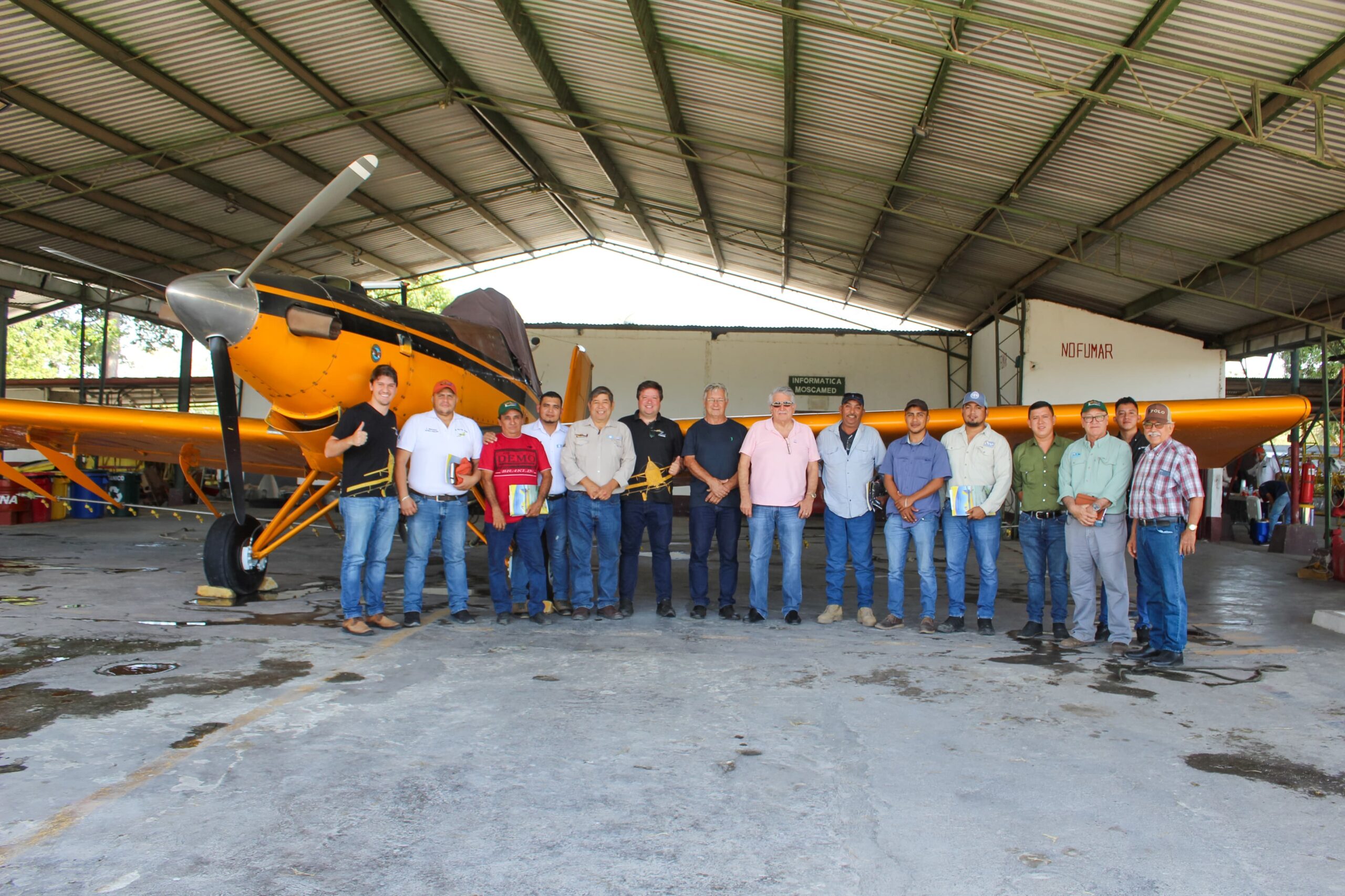
Subsequently, two more individuals joined the team: Roman (son of Julio Reyes), an engineer responsible for all electronic maintenance aspects of the aircraft, and Jason (son of Julio Vargas), an agricultural pilot currently in charge of coordinating the work of other aviators. As Mr. Juan Martinez aged, he passed the baton to Wilfredo Mejia Sanchez, an aeronautical mechanic from Honduras. After serving in his country’s air force for years, he joined the Conversiones team and became the primary reference for PT6 maintenance in Central America.
The company continued its operations in Tiquisate, on the “Guatemalan Coast.” This region, bathed by the Pacific Ocean, is the country’s leading agricultural producer and is home to the most extensive banana plantations and sugar mills, with a significant portion of the production aimed at the North American market.
The maintenance center and the main operational base of Conversiones are located there (the administrative office is in the capital, Guatemala City, near the country’s main airport). Five active company aircraft (in addition to several undergoing reconstruction) rest there, departing each day for clients’ farms, which have their own runways and loading stations.
The other three aircraft in Conversiones’ fleet are stationed in Puerto Barrios, located in the country’s northern region, near the Caribbean Sea and the border with Honduras. They exclusively serve a multinational banana group (the second-largest globally), currently controlled by Brazilians. Julio Reyes mentioned that his company shifted to operating almost exclusively in this type of crop due to the perennial nature of the application:
“We need to spray fungicide on bananas once a week, every week of the year. This ensures continuous work, unlike other crops where spraying is seasonal, providing greater profitability and security for both the company and the pilots. Banana is not only the most lucrative for aerial application operations but also for Guatemalan farmers (ensuring higher yields than other large-scale crops) and for our country as a whole (being the most exported crop in Guatemala nowadays)”.
A Link Between Different Continents
During the 2010s, Conversiones shifted its focus beyond the North and began exploring new technologies in South America. Initially, the company solidified a partnership with a turbine parts review and sales company, particularly for PT6 engines. They then initiated an association with the application technology manufacturer Zanoni Equipamentos, which has now been completed for five years. Conversiones became the authorized and exclusive distributor of the Brazilian brand for the entire Central American agricultural aviation market. Francisco, currently responsible for serving customers with this product line, shares insights about the alliance:
“Initially, we purchased the products for our own use. After confirming the quality of the equipment in practice, we decided to start reselling them to other local operators. Previously, we bought these types of parts from the United States, but we opted for Zanoni for three reasons: product quality, technical support, and work philosophy. These are technologies that sell themselves without much effort in having to promote them. Moreover, we have direct access to the technical and commercial team whenever we need it, and just like our approach here at Conversiones, they know that, above all else, we always put the customer first. Today, we have the largest stock of spraying parts in Central America, allowing us to respond promptly to any needs of agricultural pilots”.
In addition to converting spraying equipment for the Zanoni brand, Conversiones, in partnership with the Brazilians, initiated another innovative project for the region: disseminating Brazil’s most commonly used aerial spraying methods, utilizing rotary atomizers, and reducing spray volumes. Similar to what Zanoni has been doing in the USA through its local resale, Conversiones has shown local operators that, with the advancement of the chemical industry and adjuvants, it is possible to combine phytosanitary safety with greater operational profitability. The initial tests were conducted by Javier Soberano Sanchez, a businessman and agricultural pilot from southern Mexico who also serves banana crops. After equipping his Pawnees with Zanoni pumps, valves, and atomizers, the businessman welcomed agronomist Alan McCracken for a series of assessments and calibrations with the new technology and shared about the project:
“Conversiones and Zanoni financed a research and technical assistance project for us to start this type of work here in Mexico. For those not used to it, the low volume presents a few initial challenges, such as greater care in the choice of adjuvants and preparation of the chemical mix. Still, these are easy issues to solve with the necessary support. We started the tests and showed them to the farmers before anything else. Like any paradigm shift, they were initially apprehensive, but the results were excellent, and customers were very pleased with the applications. The atomizers are excellent”.
Javier’s work quickly spread, and then FBJ Aeroaplicaciones also decided to test the new technology. Jaime Baldenebro’s company, located in Ciudad Obregón in northern Mexico, equipped one of its Braves with Zanoni atomizers through Conversiones and received support from the agrochemical industry to start low-volume work. FMC sponsored a local seminar for farmers and a calibration job, also conducted by McCracken, focused on potato crops. The pilot and partner of the company, Alejandro Baldenebro, shared some considerations about the project:
“Using low volume brings us some advantages. First, it eliminates drift problems due to evaporation, as the lower water volume means less potential for dissipation through this process. With this technology, we achieve better penetration into the leaves, improved control of pests and diseases, and, consequently, higher crop productivity. We are working to promote this type of operation throughout the country”.
In 2024, Conversiones partnered with one of the authorized Air Tractor dealerships in Latin America to distribute other aviation parts to regional operators. Consequently, it has become crucial in modernizing Central American agricultural aviation, connecting the Brazilian application technology industry with the local agricultural aviation sector.

